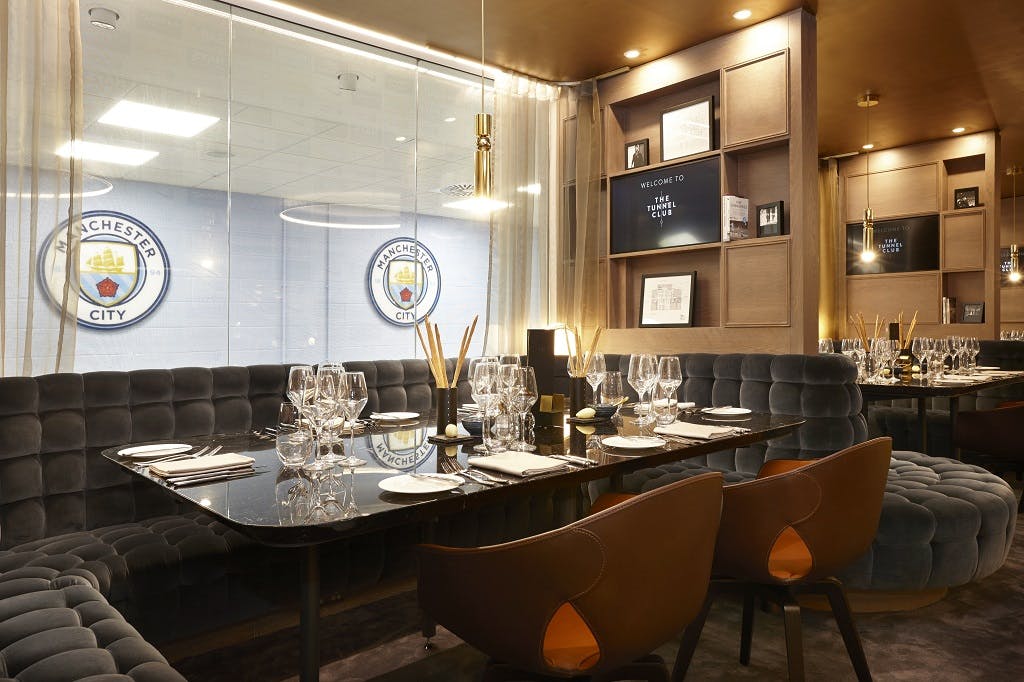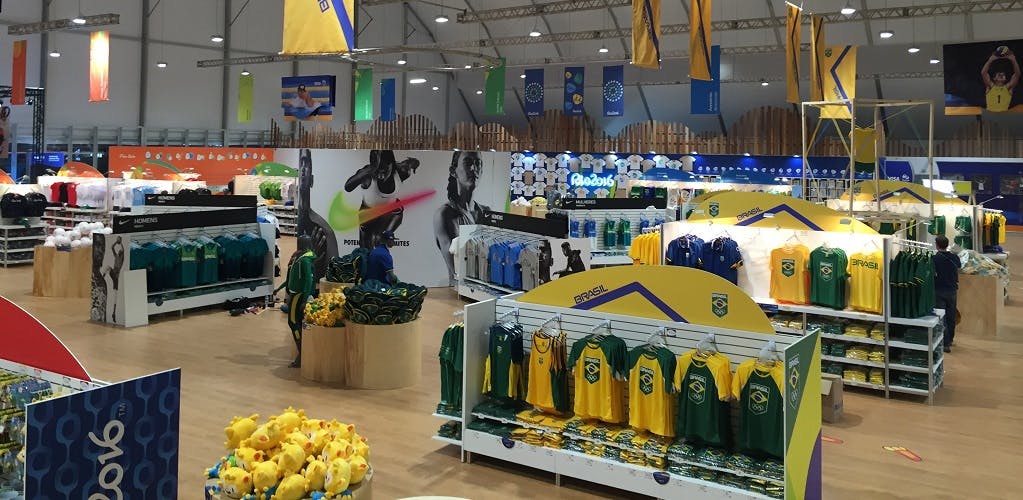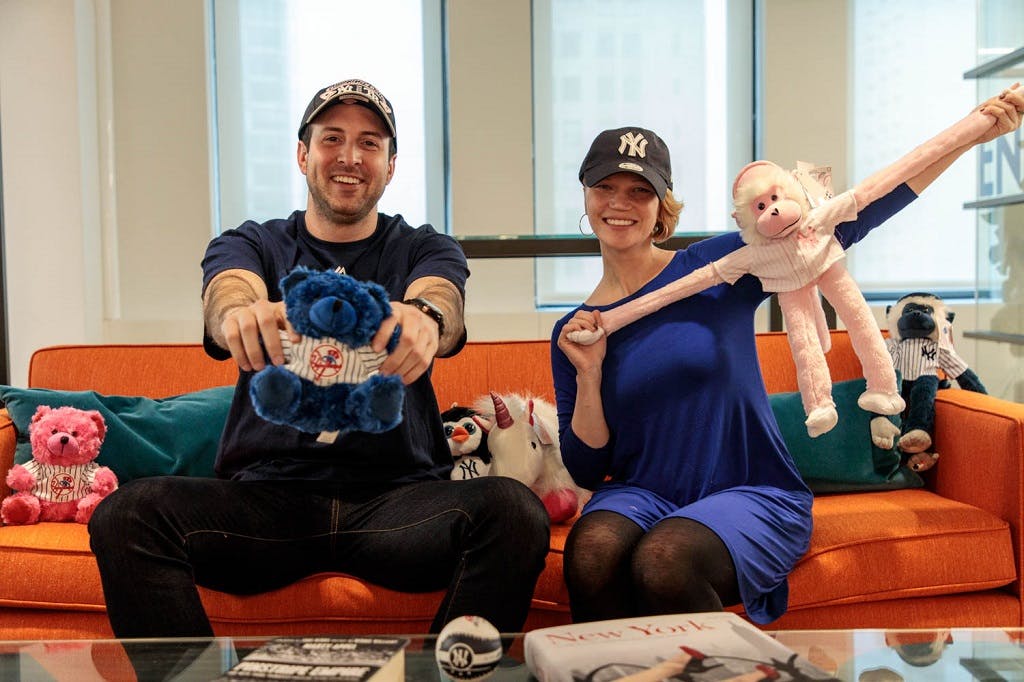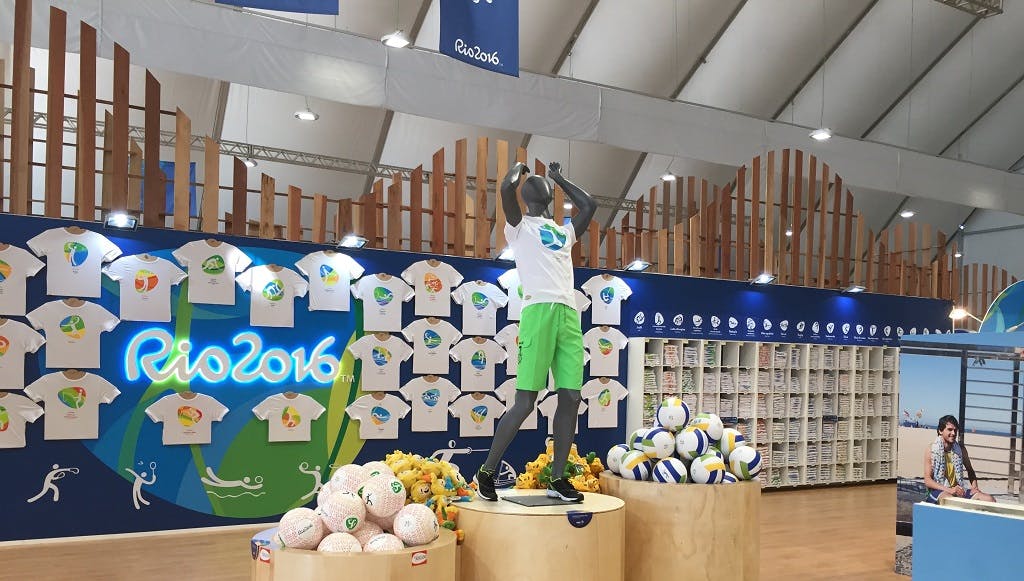This article was produced in association with Legends
Next only perhaps to what happens on the field of play or the stage itself, a venue’s food and beverage (F&B) and retail/merchandise operations are critical to optimising the fan experience. Delivering the optimal fan experience on a continuous basis and meeting the evolving demands and expectations across the full range of guests and ticketholders is fundamental to building a business that will not only generate immediate profits, but will be profitable in the long term.
Maximising the contribution of F&B and merchandising in both financial and brand-building terms is at the core of Legends’ capabilities offering. Founded by the Dallas Cowboys and New York Yankees to ensure that their stadia offered fans an F&B and retail experience beyond any other, Legends has world-class sports brands in its DNA. Since its inceptionin 2008, Legends has expanded beyond F&B and retail/merchandise and now provides expertise and services across all disciplines needed to deliver optimal value and experiences at sports and entertainment stadia and arenas and visitor attractions.
In the United States, Legends provides the F&B experience at more than 70 major venues, including AT&T Stadium in Dallas; Yankee Stadium and One World Observatory in New York; Banc of California Stadium, The Fields LA Food Hall and OUE Skyspace in Los Angeles; and nearly 40 Live Nation venues. Outside the US, Legends partners with local experts to create joint ventures which match Legends’ unparalleled knowledge of the stadium and arena space with award-winning local F&B operators. In the UK, Legends has partnered with Absolute Taste, and together they provide food and beverages at Manchester City’s Etihad Stadium, Watford FC and at The View From the Shard.
In retail and merchandising, Legends International has recruited the team responsible for delivering the onsite retail and merchandising operations at the London 2012 Summer Olympic Games, Rio de Janeiro 2016 Summer Olympic Games, the IAAF World Championships 2017 in London and now the Rugby World Cup 2019 in Japan. Stateside, Legends has produced record-breaking sales through merchandising partnerships with Indy Car and Super Bowl 50, as well as the successes of the world’s largest Pro Shop at AT&T Stadium.
In the third of our series of White Papers, Nick Price, chief commercial officer, Legends Global Events, retail & merchandise and Olly Hitchcox, business development director, of Legends’ UK F&B partners Absolute Taste, deliver key insights into optimising the fan experience.
Food and Beverage
Ensure alignment of interests
It’s difficult to exaggerate the importance of the Food and Beverage experience to the economics of twenty-first century sport. Beyond the game/event itself it is the most important factor in defining the experience for fans, whether they are enjoying premium hospitality or a different offer which better meets their requirements.
In many respects the quality of F&B is becoming part of the brand of a club, venue or event and is certainly an increasingly important revenue-driver and profit point for those who get it right. More than that, the value of F&B is not measured in per capita spend and profit alone – it is essential also to recognise the critical role that high-quality F&B plays in the delivery of sustainable long-term revenues from the premium hospitality experience.
Establishing and sustaining levels of quality is critical to maintaining these crucial revenue streams and that, in turn, demands a genuine partnership and alignment of interests between the club or venue owners and operators and the F&B providers.
Both have to share the same focus on delivering levels of quality and service which ensure a consistently outstanding experience which bolsters brand, builds reputation and future sales. You cannot afford to have a situation where a caterer is looking to drive margin and profitability at the expense of service levels and quality products and/or by increasing prices. It is essential therefore, that the relationship with the caterer is structured in such a way that they are incentivised to deliver the highest-quality service and product at reasonable prices.
Delivering a consistently high-quality F&B offering in a stadium or any other sports environment is a demanding and complex job which requires specific skills and a huge reservoir of experience and expertise and the commitment of the owners/operators to maintaining the standard of the product.
In practical terms, that means working to common goals and avoiding any temptation to squeeze margins which may deliver small savings but only at the expense of F&B quality and everything which depends on that.
Success is about clubs and venue owners working hand-in-glove in partnerships which extend from design and build to operations, so that we can be sure that what we deliver is commensurate with hitting all the key points and maximising revenue and returns for our clients and ourselves without any decline in quality.
We strive to build relationships where our interests are fully-aligned with the interests of our clients, so that we all benefit when positive results are achieved and both feel the pain when times are not so good. A shared profit and loss is the best way to create this alignment.
Support the customer experience at every price point
The fact is consumer’s expectations of catering have risen beyond all recognition in the past 20 years or so. Society has transformed into a culinary culture where people want it all – organic, locally-sourced, vegan options, gluten-free options, healthy options – all in a variety of foods with a variety of prices. Fuelled by a competitive High Street casual dining market and fed by the media’s focus on food and wine, today everybody is a connoisseur and expects great quality at a great price.
Naturally, those expectations are taken into sports arenas where F&B providers are charged with delivering a staggering variety of high-quality offers to meet a range of expectations and price points.
That’s something to which, as Legends’ partner, Absolute Taste is entirely committed and the business has developed over the years to ensure it is able to meet those expectations at venues around the world.
Its breadth of experience and understanding of the sector and changing customer demand is combined to a singular focus on delivering the highest-quality foodservice – often in venues not designed for the purpose – across a full range of price points.
And because back-of-house facilities at some sports venues are not optimised for excellence in F&B, the company has continued to invest in facilities which allow it to conduct elements of food preparation offsite, mitigating some of the challenges presented by working in a stadium environment and to reduce capital investment requirements and operating costs by, for example, reducing the need for huge kitchens and huge numbers of staff and chefs onsite for events.
We work hard to propose menus in styles which reflect the expectations of the clubs and venues and their customers. And while there will always be a place for simple, traditional dishes like pie and mash, the change in expectations means that when customers are paying large sums for a premium experience they expect the choice and quality of the food and drink to match that which they would enjoy in a top restaurant.
The overriding principle is that you cannot charge more or deliver worse quality just because you are in a stadium. Providers are competing with the best quality and most competitively-priced food and drink outlets elsewhere because that is the level of experience that our guests are used to receiving.
Delivering quality of service
Great food alone is only part of the game day F&B experience. The other side of the equation is the ability to provide a service which meets the requirements of each individual customer group within a stadium, whether they are experiencing fine dining in the Tunnel Club at Manchester City or a burger in the Fan Zone.

One of the key challenges to consistently delivering high-quality service in stadium catering is the simple fact that many facilities are used only 25 to 30 times a year. On those 25 to 30 occasions, you may need 1,000 staff, and by definition a large percentage of this workforce are ‘casuals’. This means that training and management are critical to delivery of the requisite quality of service – again expectations have risen hugely due to the competitive environment. Unfortunately, many companies are reluctant to invest in recruitment, training and retention.
Absolute Taste has a significant advantage because the scale of the overall operation means that they operate 365 days a year and have a constant requirement for staff. The upshot is that they are able to offer people careers, not just casual jobs, giving employees the opportunity and encouragement to work their way through the ranks into management. That gives them an incentive and a level of engagement which reflects in service standards. It is about investing in people and that is something that happens because of the scale of the business and the results benefit the clients and their customers alike.
Retail and Merchandise
Creating the best retail environment
The importance of sports merchandise is reflected by the store location and the incorporation of innovative product display and point of sale components throughout the overall retail environment. Legends has a proven track record at maximising revenue by creating the best possible retail environments, including the creation of the largest pop-up store in Olympic Games history at the Rio 2016 Summer Olympic Games (45,000 sq ft/4,200 sq m); the largest stadium in the NFL, AT&T stadium, home to the Dallas Cowboys Pro Shop (16,000 sq ft); and a 4m x 4m pop-up at the 2018 Berlin European Championships.
Whether they are in-stadium or external pop-ups, merchandise outlets are where fans come to immerse themselves in a love affair with their team or sport.
Legends’ focus is on creating and maintaining the ‘wow’ factor by keeping the retail experience fresh and innovative. That doesn’t simply mean displaying new products as they arrive but continually moving fixtures and fittings to make the visitor experience different and to keep fans intrigued, discovering and buying.
Legends developed a merchandising programme for Super Bowl 50, the most-watched annual sporting event in the world, which resulted in record-breaking results and set the standard for strategic planning at any sports or entertainment venue. The event established a gross volume Super Bowl sales record at $4.6m, employed over 900 team members and 75 managers, used 8 mobile trucks to expand the sales footprint outside of the 4 walls, and had a record gameday sales-per-capita at $58.77. By every measurement, it was extremely successful.

Understanding the customer journey
While many fans are happy to make their way to a central megastore, that is only part of the overall merchandise landscape. To maximise sales opportunities, it is necessary to develop an understanding of the ‘fan journey’ on match days and to ensure that sales opportunities are optimised by having outlets in the right places.
The pattern of fan movements in and around the stadium differs according to factors including the duration and dynamics of a particular event and the time of day it takes place. Fans rushing for the last train home are less likely to find the time to visit a central store but may well visit an outlet on their route to the station.
That may sound like common sense, but the reality is that studying footfall and customer patterns and having the experience to understand their impact on retail is something which results from years of experience of working in stadiums and at events worldwide for many years and being able to apply that knowledge to maximise revenues on behalf of clients wherever they are.
One example is Legends’ partnership with Indy Car. After seeing a gradual decline in e-commerce sales from a high of $1m in 2011 down to $340,000 in 2013, a more cohesive approach was required to ensure the future success of the online store. In attempt to boost sales, Legends developed exclusive online driver merchandise utilising drivers’ social media followers and capitalising on the strong bond that fans have with drivers.
In 2016, the 100th running of the Indy 500 took place, delivering unprecedented merchandise sales serving approximately 400,000 fans on race day alone and amassing a record-breaking $3.8m on the day.
Maintaining control of the brand
An effective merchandise operation will not only drive revenue but create greater engagement with a sports brand – whether it is a club or an event – and encourage future investment.
In order to do this it is important to control every aspect of how the club or event brand is presented, which means that the old model – under which licenses for different product categories would be granted to anybody willing to pay the fee – is not simply flawed but broken.
Today the business is about protecting and enhancing the brand through an effective and strategically-planned merchandise programme. The fact is that there are only so many times you can sell a tee-shirt with a logo, so our approach is to tell stories through merchandising – the stories of clubs and events through their heritage, their history and special moments.
Merchandising in today’s market requires a real depth of understanding of the customer. In many respects sports and events merchandise is a different kind of purchase, one that is a reflection of an emotional engagement with the brand and a desire to be part of it. The fact is that you don’t buy a hoodie at an event because you are cold! You do it because you are proud to wear the colours, because it is your team and you are making an investment in your team which is driven by the desire to show your passion.
Legends’ approach to merchandising has been influenced by our experience at the ‘Gold Standard’: a Summer Olympic Games, which is one tremendous example of where merchandising magic really happens. The Olympic Games represents the biggest stage in the world, and we like to bring that experience to bear for the benefit of all the clubs and events we work with.
Why quality matters
Just as controlling every aspect of the brand is vital, it is also important to ensure strict controls on the quality of all the merchandise in a range.
The focus on quality is also driven by an understanding of the customer and the reasons they make a purchase. They are investing in something they love and are proud of the team, the country, city or event which is featured on the product.
If a product falls apart or fades the first time it is washed, it not only means that you have lost a customer for the future but, worse still, the relationship between the customer and the sports brand is tainted. The point is that you have to maintain a level of quality which reflects the sports brand in question and you can’t ever let the customer down. If a £25 tee-shirt has been poorly-produced, people will quickly tell you and that is why putting products which are sub-standard into the range is not an option.
Innovation and choice
While successful merchandise programmes are founded on brand and quality control, if they are to really fly they must also be creative, innovative and exciting. Without the spark of innovation, a programme will inevitably underperform. That means creating and offering a range of products that give people a reason to buy even when they may be regular fans who are at the stadium to watch their club 20 or more times a year.
In the case of a football club, the team kit is generally the main purchase but is likely to be a one-off. So, it is important to ensure that fans have a reason to keep coming back to see what else is on offer, to see what else they can buy for themselves or as gifts for friends and family. For example, a 60-year-old father may not be comfortable in the latest away jersey but he may be delighted to wear a product celebrating the triumphs of the teams he grew up watching in the 1960s.
Naturally, we like to keep the product range and the way it is displayed fresh and make the offer seasonal just as High Street stores do. Therefore, the strategy must be to provide a wide range of quality merchandise which will appeal to people of all genders, ages and sizes, and who are united by a love of the team or event.
A perfect example of this is the Yankees cap – the most recognisable piece of sports apparel in the world. No matter where you go, the hat can be seen on all ages and genders ranging from those who are devout Yankee fans to those who have never watched a baseball game in their life. Legends has operated the retail at the fabled stadium, winning MLB retailer of the year in 2009 and 2013, and earning the highest sales-per-capita in all of team sports. It has also garnered the Five Diamond Hospitality Award three times. The fact that the Yankees have won 27 championships and celebrities such as Jay-Z and Denzel Washington are regularly spotted donning the cap has helped it become a symbol of pop culture and fashion; but in addition to this, Legends has been an integral part of that success.

